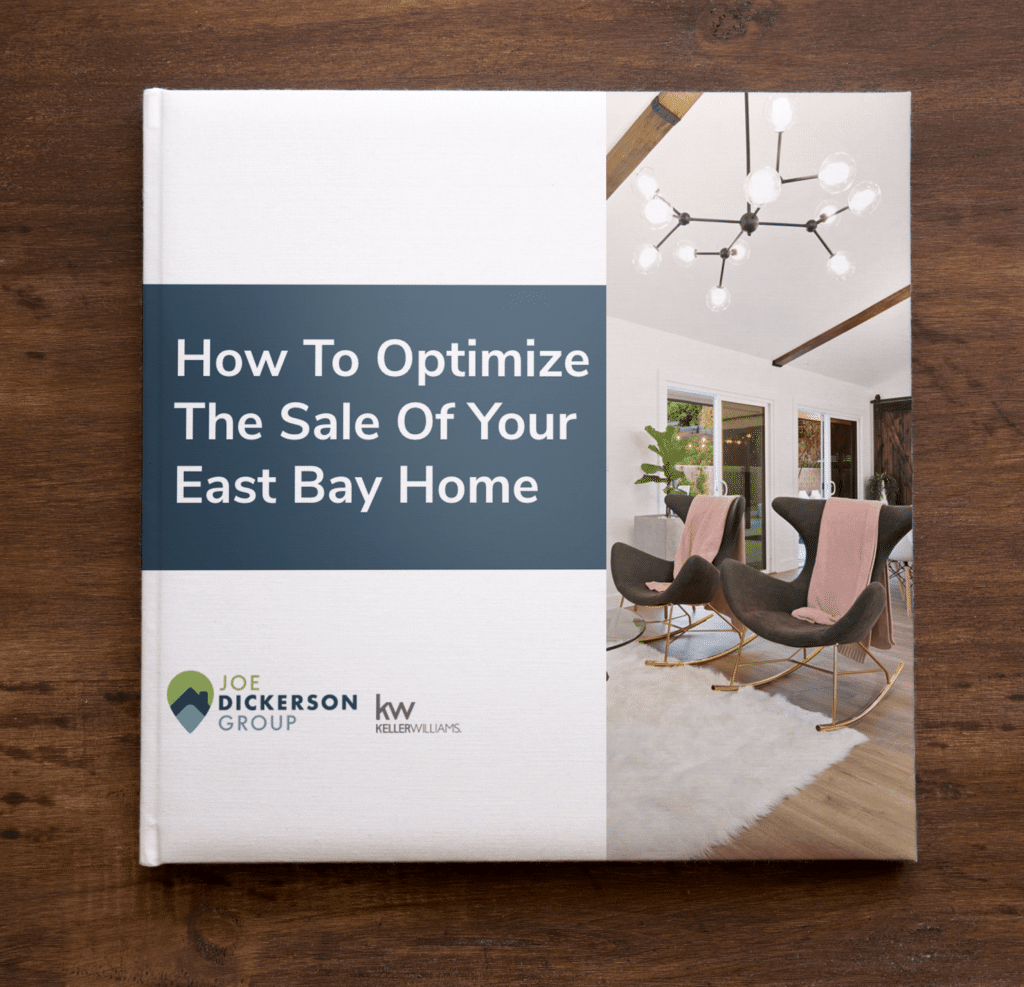In this ultra-competitive Oakland and East Bay real estate market, it can be intimidating to be a buyer, especially when you’re first starting out.
Homes can fly off the market within days, often for several hundred thousand, or even a million-plus, above asking price. So how can you be sure your offer stands out among the sea of other offers that the seller might be getting?
One little-known strategy is to use something called an escalation clause, also known as a relative offer or accelerated offer. An escalation clause is exactly what it sounds like – when enacted, it triggers an escalation in the offer price, up to a specified maximum amount.
While at first blush the escalation clause might seem like the perfect solution when trying to beat out the competition, in reality, escalation clauses can actually cause real issues and can lead to you losing out on the home of your dreams.
In this article, we’ll share with you what an escalation clause is, whether an escalation clause can help you buy a house, and why we generally recommend against using escalation clauses in Bay Area transactions.
What Is An Escalation Clause?
Let’s start with the basics – what is an escalation clause? In real estate, an escalation clause is a clause or addendum that you can add to a real estate contract that notes that you’re willing to raise your offer price in the event that the seller receives a higher competing offer.
For example, let’s say that the house you want to buy is listed for $995,000. There are a lot of other buyers who will be putting offers on the property, so you don’t know where your offer stands among the competition.
You decide that $1.3 million is a reasonable offer, so you submit an offer at that price. If you were to add an escalation clause, it might say something to the effect of – if the seller receives any other offers that are higher than your $1.3 million, your offer will increase by X amount up to Y maximum.
In this case, let’s say your escalation clause says that your offer will increase by $10,000 up to a maximum of $1.5 million. That means that if the seller were to get an offer of $1.4 million, thus triggering your escalation clause, your offer would be at $1,410,000.
Escalation clauses have been around for a long time, but in many markets, they’ve gained popularity since the onset of the COVID-19 pandemic, as pent-up demand has made the housing market more competitive.
However, just as pricing strategy can be very different from one market to another, the use of an escalation clause can also vary drastically, and there’s not a one-size-fits-all solution.
Will An Escalation Clause Help You Buy A House?
When the home you’re looking to put an offer on has dozens of other offers that you’ll be competing against, it’s critical to do what you can to make your offer as strong as possible so that you can stand out among the competition.
While an escalation clause might seem like your ticket to the top, it’s often not as successful as you might think. An escalation clause is no guarantee that your bid will be the winning one, and in many cases, an escalation clause can actually be a detriment to your chances of getting the house.
In an analysis of thousands of real estate offers written by Redfin agents between July 2020 and February 2021, Redfin found that an escalation clause had no significant impact in improving an offer’s chance of success.
The top two factors discovered in the study were that an all-cash offer improves your likelihood of success by 290%, and waiving a financing contingency can increase your bid’s chance of success by 66%.
What this means is that an escalation clause can often cause more headaches than it’s worth, which is a big part of why we recommend against using escalation clauses here in Oakland and the Bay Area.
Why You Should NOT Include An Escalation Clause In Your Offer
As with many nuanced real estate strategies, the escalation clause is used and viewed differently from one market to another. In some parts of the country, escalation clauses are widely popular and can be a definite way to make your offer stand out.
Here in the Bay Area, however, escalation clauses are often frowned upon by listing agents. Why? For one, using an escalation clause makes an offer more complicated, which means you risk the chance that the listing agent doesn’t fully understand it and thus won’t recommend your offer to the seller.
Another potential complication is if there are multiple escalation clauses in play. In that case, it’s nearly impossible to determine the final offer for each bid, thus forcing the listing agent and seller to have to navigate legal nuances.
Further, using an escalation clause means that you’re giving away your hand. In other words, by including the maximum price you’re willing to pay, you’re telling the seller exactly how much you have to spend.
What that means is that, even if there are no other offers on the property except yours (and thus the escalation clause would not be triggered), the seller can just counter you back at your maximum offer amount, knowing that that’s what you’d be willing to pay. This can leave you with minimal negotiating power.
Ways To Make Your Real Estate Offer Stand Out Beyond Using An Escalation Clause
While using an escalation clause is typically not a popular real estate strategy here in Oakland and the East Bay, there are other ways to make your offer stand out amid the competition.
Waive Your Financing Contingency
Aside from an all-cash offer, which often beats out the competition, the next best thing is to waive contingencies, one of which is your financing contingency. This means that, if for any reason, your lender decides NOT to follow through with financing this property, you would still move forward with the purchase.
Before waiving your financing contingency, you should work closely with your lender to do as much underwriting as possible, so they and you are as confident as possible that they’ll be able to fund the deal.
Waive Your Appraisal Contingency
Another thing you can do to strengthen your offer is to waive your appraisal contingency. This means that if the appraisal were to come in lower than your offer price, you would still move forward with the purchase.
If the appraisal does come in low, you will need to be prepared to make up the difference, which can sometimes turn out to be hundreds of thousands of dollars. This is certainly a risk you would be taking, but there are ways to get resourceful to make up the shortfall. Plus, waiving the appraisal contingency can signal to sellers that you’re serious.
Waive Your Inspection Contingency
Another popular strategy here in the Bay Area is to waive the inspection contingency, especially when the seller has already had a third-party inspection completed, and the inspection report is included in the disclosure packet.
Waiving the inspection contingency signals to the seller that you’re not going to try to negotiate the price down further as you discover things that need to be fixed around the home.
At the end of the day, sellers want to know that the offer they choose will be a slam dunk that will get them to a quick and seamless close. Sellers don’t want to have to deal with the hassles of making additional repairs, negotiating the price down, or providing credits.
In this seller’s market, you want to do everything you can to let the seller know that you’re serious and willing to do what it takes to close the transaction, regardless of what may come up in the process.
That way, the seller can choose your offer with the confidence that you won’t fall out of contract, thus leading them to have to re-list the property.
Are You Looking To Buy A Home In Oakland Or The East Bay?
If you’re looking to buy a home here in Oakland, Berkeley, or the East Bay, buckle up! You’ve definitely got an adventure ahead of you.
Buying a home in this heated market can be difficult, frustrating, and even disheartening at times, but that’s what we’re here for. We’ve helped hundreds of buyers get into their dream homes around the Bay Area.
We know what sellers are looking for, and we can help you create a strategy based on your unique situation to help you stand out among the competition so you get that house you’ve always wanted.
Start by reaching out to our team today for a free no-strings-attached consultation. You can also reach out directly via phone or text at (510) 995-0035.
We look forward to hearing more about you and your situation and seeing if we’re the right fit to help you reach your real estate goals!



